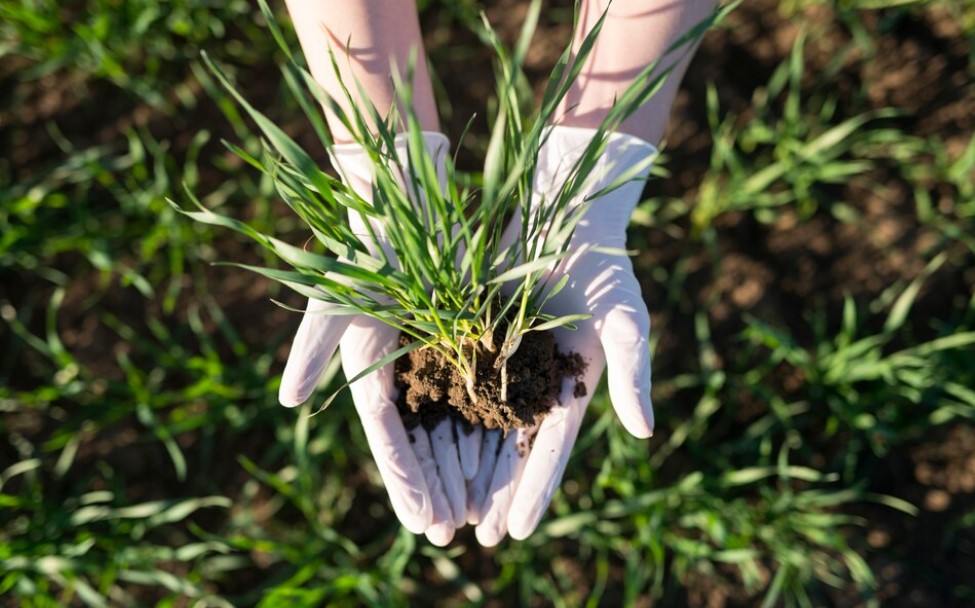Cultivating a lush, healthy lawn is a gratifying element of homeownership, significantly boosting your property’s curb appeal. But nurturing that perfect green expanse demands ongoing dedication and a keen eye for detail. In this detailed guide, we’ll explore essential steps to maintain your lawn grass thriving and radiant all year round.
Table of Contents
Identify Your Grass Species
The cornerstone of lawn care is recognizing your grass variety. Different species, like Kentucky bluegrass, Bermuda, or Fescue, have unique requirements regarding sunlight, water, and maintenance. Customizing your care routine to suit your specific grass type is vital for its overall well-being.
Routine Mowing Practices

Frequent mowing is crucial for a healthy lawn. However, avoid trimming the grass too short, as this can induce stress and increase vulnerability to diseases. A good rule of thumb is to trim only one-third of the grass blade at each mowing. Sharp mower blades are essential for clean cuts, minimizing grass damage.
Effective Watering Strategies
Proper watering is key, but incorrect watering can be detrimental. Lawns generally need about 1 to 1.5 inches of water weekly, from rainfall or manual watering. Opt for deep, sparse watering to foster deep root growth. The best watering time is early morning, allowing the grass to dry during the day and lowering disease risk.
Nutrient-Rich Fertilization
Fertilizing your lawn supplies necessary nutrients. The type and frequency of fertilizer depend on your lawn’s specific needs and soil type, determinable through a soil test. Typically, fertilization occurs in spring and fall, though this can vary with grass type and regional climate.
Weed Management

Weeds, apart from being unsightly, compete with grass for nutrients and water. Weed control can be achieved with pre-emergent herbicides, preventing weed seed germination, and post-emergent herbicides, eliminating existing weeds. Always adhere to the product guidelines.
Pest and Disease Surveillance
Regularly inspect your lawn for pest or disease indicators. Symptoms like brown patches, wilting, or bare spots can signal problems. Prompt detection and treatment are critical for management. Sometimes, adjusting your lawn care routine can resolve issues; other times, pesticides or fungicides may be necessary.
Soil Aeration

Aeration, the process of perforating the soil to let air, water, and nutrients reach the roots, is crucial for robust grass growth. It’s especially beneficial for compacted soil or lawns with heavy thatch. Aerating is best done during growth seasons, allowing the grass to recover and occupy the aerated areas. Annual aeration is generally sufficient for most lawns.
Thatch Removal
Thatch, a layer of dead grass and debris, can accumulate between the soil and living grass. While a thin thatch layer is helpful, excess thatch hinders essential elements from reaching the soil. Removing this layer, or dethatching, can be done with a specialized rake or power dethatcher.
Overseeding Technique
Overseeding involves planting new grass seeds in bare or thin areas. This is often done in fall, giving the grass time to establish before winter. Before overseeding, lower your mower setting and clear clippings to ensure seed-to-soil contact.
Seasonal Lawn Care
Lawn maintenance varies by season. In spring, focus on fertilizing, mowing, and weed control. Summer demands careful watering and mowing, with pest control as needed. Fall is ideal for aeration, overseeding, and final fertilization. In winter, limit lawn traffic to protect the dormant grass.
Conclusion
Achieving a vibrant, robust lawn entails a blend of consistent care, precise techniques, and patience. By adhering to these guidelines and catering to your specific grass type’s needs, you can maintain a splendid lawn. Remember, lawn care is a continuous journey, requiring adaptability to your lawn’s evolving seasonal needs.

